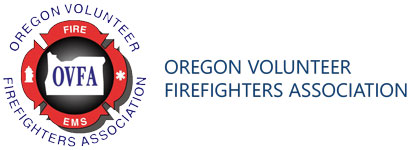What does it mean to be a volunteer firefighter or emergency medical services (EMS) provider?
For some it is a way to give back to their communities; for others it’s a way to move into a paid job, or it starts as a way to meet friends and interact with a group of individuals who are motivated to come together to help one another. It’s responding at all hours of the night and day to any number of emergencies. It’s the challenge of remembering how to cut a car apart or gain access to a burning home. It’s seeing your fellow humans at their worst, looking to you to help them through an event that forever will be in their memory. It is something you will never regret doing.
Almost without exception, all of your training and equipment to become a firefighter are paid for by the agency. Some pay for or reimburse the cost for emergency medical technician (EMT) training. The majority of fire departments in Oregon train to the Firefighter I standard. This level of training says you are certified to enter a live burning structure without direct supervision. This is not to say you enter the building alone, only that you do not need a supervisor (officer) with you. To reach this level takes about 80 hours, usually over the course of six to twelve months. This is known as your recruit training and includes CPR, HazMat Awareness and Operations, Blood and Airborne Pathogens, as well as all the sections of fire suppression that allow you to respond within the guidelines of the Occupation Safety Health Association (OSHA) Department of Health, EMS and Trauma Section and the Department of Public Safety Standards and Training (DPSST) as they pertain to firefighting and the delivery of emergency medical services.
The hours you dedicate to this most noble profession are dependent on the number of calls your local agency responds to and its training structure. Many departments are involved in a number civic and fundraising activities while others are not. Some agencies respond to thousands of calls per year while others to only 50. Large or small, you are part of a much larger group: the OVFA. To learn where your local emergency agency is located or for more information on volunteering, please contact the OVFA office at ovfa@ovfa.org.
